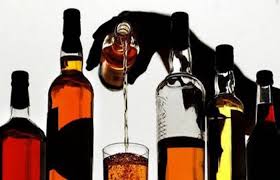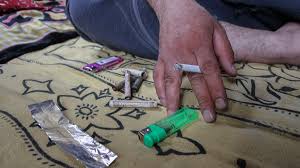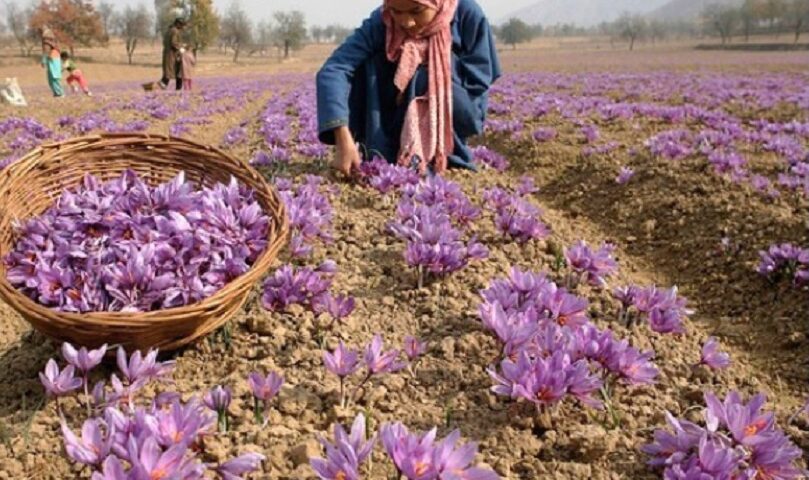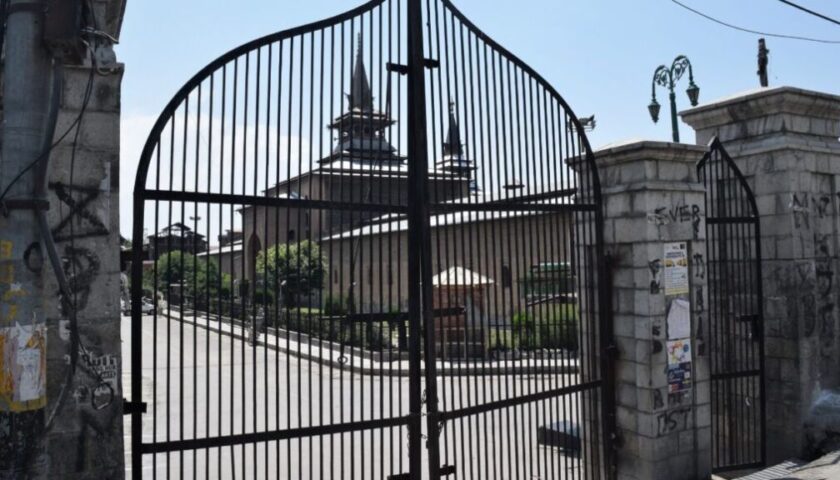 Jammu and Kashmir government’s stand ruling out ban on sale or trade of liquor in the state has evoked strong condemnation from Kashmir’s powerful clergy, civil society, sections of academia and the pro-Azaadi camp led by the Srinagar-based cleric Mirwaiz Umar Farooq.
Jammu and Kashmir government’s stand ruling out ban on sale or trade of liquor in the state has evoked strong condemnation from Kashmir’s powerful clergy, civil society, sections of academia and the pro-Azaadi camp led by the Srinagar-based cleric Mirwaiz Umar Farooq.
During the Zero Hour in the Jammu & Kashmir legislative council, finance minister Haseeb Drabu said, “There is a demand for banning liquor but I believe that the issue needs to be addressed on the basis of freedom of choice”.
While ruling out a ban on liquor, Drabu asserted that “as a state policy, we cannot enforce our decision on others, there is a freedom of choice and let people decide what they want to do”. He further argued that “vegetarians can’t ban non-vegetarian food”.
Predictably, the finance minister’s “right to drink” statement did not go down well with many in the Muslim-majority Jammu and Kashmir where alcohol consumption lacks social sanctity.
Liquor is though available at some licensed shops in outskirts of Srinagar near the Indian army’s Badami Bagh cantonment, and top five-star hotels in the region for tourists, etc. Similarly, in Jammu region, it is readily available in hotels, bars and liquor shops.
Hurriyat On The Offensive
Mirwaiz Umar Farooq, chairman of his faction of the All Parties Hurriyat Conference (APHC), said that Drabu’s remarks were in “bad taste”.
He demanded that the finance minister retract his statement and “unequivocally apologise to the people of Jammu and Kashmir”.
“Leave aside the religion of the majority community aside; we all understand the many ills of the free use of liquor. It is bad for health. It is bad for our society in every way,” the Mirwaiz told Kashmir POST.
argued if liquor can be banned in the Hindu-majority Indian states like Bihar and Gujarat why can’t a ban be implemented on its sale in the Muslim-majority Jammu and Kashmir.
The Hurriyat chairman said that it was unfortunate that the PDP-BJP government was “patronising sale and use of liquor” in the Kashmir Valley, which he described as “alcove of Sufis and Saints”.
He urged various socio-religious groups and representatives of all communities to “join hands to force the government to enforce ban on liquor”.
“[I] condemn brazen stand of the government not to ban liquor in Muslim majority J&K. If for the govt it’s a matter of ‘freedom of choice’ then why ban beef?” he wrote on Twitter.
Widespread Support
Nyla Ali Khan, a well-known academic from Kashmir and professor at Oklahoma University, USA, has supported the demand for a ban on liquor. “
“It is very important for the state government to keep in mind Jammu and Kashmir’s socio-cultural and religious sensibilities…A ban on liquor will not hurt anyone physically or psychologically. This is a conservative state and there is nothing wrong in that” Khan, who is also the granddaughter of Sheikh Mohammad Abdullah, told Kashmir POST.
She further argued that J&K was vulnerable politically, socially and culturally, as the continued “brutalisation and militarisation has ripped apart Kashmir’s social fabric” and, therefore, “it is time to do some genuine repair work”.
According to her, even many Hindus in Jammu province would support the ban on liquor, considering its negative impact on the overall health of the society.
Zaffar Choudhary, the Jammu-based author and political commentator, is of the view that Drabu was just being “politically correct”.
He suggested that the government should invite opinions from cross-sections of the people of J&K before saying no to the ban or, may be, impose heavy taxes on liquor to make it “unaffordable”.
Interestingly, he too cited examples of Bihar, Gujarat and Haryana to make a point that the ban on liquor had little to do with religion and more to do with social hazards.
Veteran columnist Ajaz-ul-Haque took a jibe at the finance minister in his Sunday column by arguing that “His [Drabu’s] argument that ‘vegetarians can’t ban non-vegetarian food’ is too facile to hold weight. Food doesn’t break families, doesn’t tear apart social fabric, doesn’t result in accidents, it doesn’t turn you into a mental wreck. If choice is the ultimate motive, then every law is coercion, every rule is force. Personal pleasure makes us free, but social well-being makes us responsible. Individuals can’t impose, that’s why we choose a system.”
In the early 1970s veteran pro-Pakistan leader Syed Ali Geelani, who was then Member of J&K Legislative Assembly as a Jamaat-e-Islami (JeI) politician, had vociferously demanded a ban on sale and consumption of alcohol inside the assembly.
Speaking to Kashmir POST, Dr Sheikh Showkat Hussain, Head, School of Legal Studies at Central University of Kashmir, said that “liquor should be banned in Jammu and Kashmir as it spoils society”.
Many netizens took to social media and wrote strong messages favouring the ban on liquor while the socio-religious groups which wield influence in Kashmir are contemplating a joint strategy to put pressure on the government in this regard.
Suhail Masoodi, Director Centre for Research and Development Policy (CRDP), said that any decision regarding banning or consuming alcohol or beef should be taken while keeping Jammu and Kashmir’s multiculturalism and multi-religious landscape in mind.
“The majority community must respect the sensibilities of the minority community and vice versa,” he told Kashmir POST.




